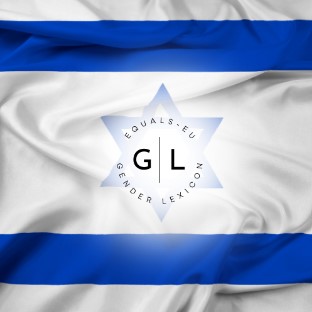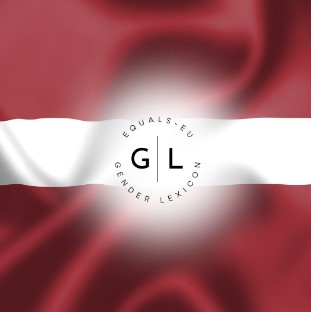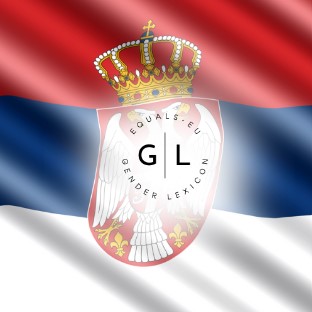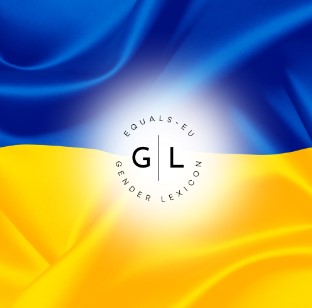
TURKISH – CINSIYET SÖZLÜĞÜ
In the context of the EQUALS-EU project, we recognize the importance of tailoring our lexicon to the linguistic and cultural nuances of each participating country. To achieve this, our consortium partners have made language-specific contributions to the lexicon, ensuring that the terminology and definitions align seamlessly with the national languages and contextual understandings of the respective regions. Below, we present the Turkish contributions that enrich our lexicon, reflecting the diverse and inclusive approach to data collection for our project.
Diversity – Çeşitlilik
İngilizce birebir çeviri – Diversity :
Comments in English: It is a positive word.
Örnek ifade: Çalışma hayatında çeşitlilik ve kapsayıcılık önemli ilkelerdir.
Equality – Eşitlik
İngilizce birebir çeviri – Equality
Comments in English: Very wide and common usage
Örnek ifade: Eşitlik toplumsal adalet için önem taşır.
Gender – Toplumsal cinsiyet
İngilizce birebir çeviri – Social sex :
Comments in English: It is highly confused with sex (cinsiyet).
Örnek ifade: Toplumsal cinsiyet ve cinsiyet farklı şeylerdir.
Gender Equity – Toplumsal cinsiyet adaleti
İngilizce birebir çeviri – Gender justice :
Comments in English: The translation of gender equity in Turkish is a term used to replace the idea of
gender equality, even the president states he does not believe in gender equality. Anti-gender politics
manifested itself in the formulation of a new narration based on ‘gender justice’ replacing gender
equality by the ruling regime in which the role of women is seen in the family.
Örnek ifade: Toplumsal cinsiyet adaleti kavramı toplumsal cinsiyet eşitliği kavramının yerini tutamaz.
Inclusion – İçerme; sosyal içerme
İngilizce birebir çeviri – Inclusion/social inclusion
Comments in English: It is a commonly used, positive word.
Örnek ifade: Sosyal içerme politikaları birey bazlı değil toplumsal olmalıdır.
Mainstreaming – Anaakımlaştırma
İngilizce birebir çeviri – Mainstreaming
Comments in English: very limited usage in academic and policy circles
Örnek ifade: Ana akımlaştırma toplumsal cinsiyet perspektifinin ve toplumsal cinsiyet eşitliği
hedefine verilen önemin politika geliştirme, araştırma, yasal savunma/diyalog, mevzuat, kaynak
tahsisi, planlama, program ve projelerin geliştirilmesi ve takibi gibi tüm konularda merkezi
konuma gelmesini gerektirir.
Marginalisation – Ötekileştirme, marjinalleştirme
İngilizce birebir çeviri – othering, marginalisation
Comments in English: widely used, includes discrimination
Örnek ifade: Ötekileştirme kendinden farklı görülen diğer insanları aşağılama, değersizleştirme
ve düşman haline getirmektir
Sex – Cinsiyet
İngilizce birebir çeviri – sex
Comments in English: Used widely, confused with gender.
Örnek ifade: Cinsiyet, bireyin biyolojik olarak kadın veya erkek olması anlamına gelir ve
kadın ve erkek arasındaki anatomik farkı ifade eder.
Sustainability – Sürdürülebilirlik
İngilizce birebir çeviri – Sustainability :
Comments in English: Widely used especially in terms of development.
Örnek ifade: Sürdürülebilirlik temel olarak çevre koruma, ekonomik büyüme ve sosyal gelişim
başlıklarında ele alınabilir.
Transformation of gender and gender roles – Toplumsal cinsiyet rollerinin dönüşümü
İngilizce birebir çeviri – transformation of gender and gender roles
Comments in English: It refers to a positive process in which gender roles in a society changes.
Örnek ifade: Toplumsal cinsiyet rolleri dönüşüm içindedir.
DISCLAIMER
We are aware of the global, legislative, and academic definitions that exist for gender terminologies and the consortium drew from these definitions in tailoring the research tools to their contexts. The EQUALS-EU lexicon does not purport to redefine or displace the existing definitions, our intention is to share through our lexicon the approaches adopted per country when collecting the data for the project. We hope this may inspire and perhaps be a useful tool for those wishing to support and work with more gender-inclusive innovation processes.














